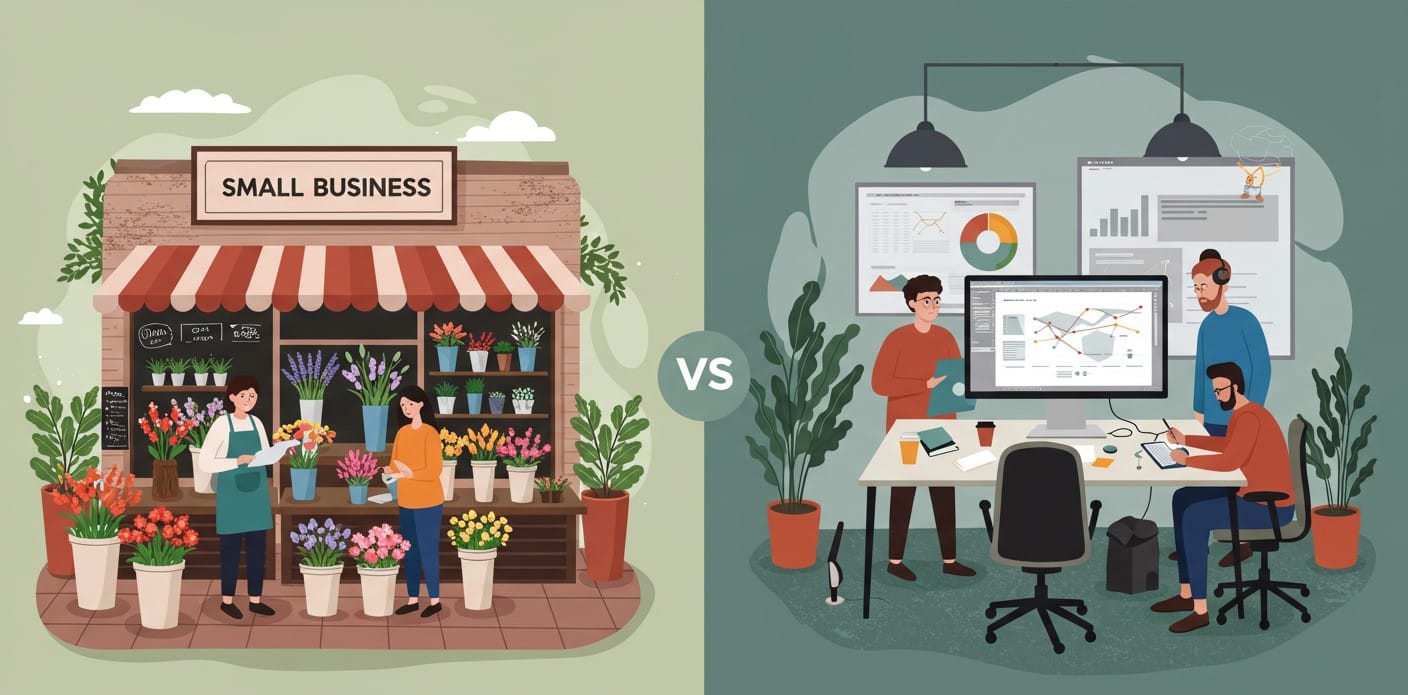Introduction
If you’re starting a business or working on a policy for small enterprises, you’ve probably heard terms like MSME, SME, and startup used interchangeably. But while they may seem similar, these terms actually describe different types of businesses with distinct goals, growth patterns, and regulatory definitions—especially in emerging markets like Nigeria, Kenya, and South Africa. Understanding the difference between SMEs and startups can help you access the right funding, comply with local regulations, and choose the right growth strategy. Whether you’re an aspiring entrepreneur or a policymaker, this simplified guide breaks it all down for you.
What is an MSME?
MSME stands for Micro, Small, and Medium Enterprises. This classification is often used by governments and financial institutions to determine eligibility for grants, loans, and other forms of support.
MSME Classification (Example: Nigeria)
- Micro enterprise: Fewer than 10 employees and less than ₦5 million in assets
- Small enterprise: 10–49 employees and ₦5–50 million in assets
- Medium enterprise: 50–199 employees and ₦50–500 million in assets
MSMEs are considered the backbone of most economies, contributing significantly to employment and GDP. They are usually formally registered, owner-managed, and focused on stability rather than high-risk innovation.
What is an SME?
SME means Small and Medium Enterprise. It’s a more generalized global term, often used in developed economies to describe businesses that are bigger than micro-enterprises but still smaller than large corporations.
SMEs:
- Have limited employees and revenue (varies by country)
- Operate in sectors like retail, manufacturing, logistics, and services
- Are often family-owned or founder-led
- Focus on steady growth and profitability
SME and MSME are used interchangeably in many cases. The main difference is that MSME explicitly includes micro enterprises, which are often left out of SME definitions.
What is a Startup?
A startup is a young company designed to grow fast, usually by solving a unique problem with innovation and technology. Unlike SMEs, which focus on incremental growth, startups are built for scale and often attract external funding like venture capital.
Characteristics of a Startup
- New, innovative product or service
- High growth potential
- Often unprofitable in early years
- Funded by investors, grants, or accelerators
- Operates in uncertainty and seeks product-market fit
Think of a startup as a temporary experiment searching for a repeatable, scalable business model—unlike SMEs, which typically operate with an established model.
Key Differences: MSMEs, SMEs, and Startups
| Feature | MSME/SME | Startup |
| Business Model | Proven, stable | Unproven, evolving |
| Growth Focus | Steady and sustainable | Rapid and exponential |
| Risk Level | Moderate | High |
| Funding Source | Banks, government grants | Angel investors, VCs, accelerators |
| Technology Use | Moderate | Often core to the business |
| Formality | Usually registered and regulated | Can begin informally |
| Goal | Long-term survival & profit | Market disruption & scalability |
Why This Matters For You
Knowing whether your venture is an MSME, SME, or startup affects:
- What funding you qualify for (e.g., MSME grants vs. startup accelerators)
- Which compliance laws you must follow
- The kind of team you should build
- How you attract customers and grow
For policymakers and support organizations, these classifications determine how you tailor interventions—what works for a startup may fail for an SME, and vice versa.
Real World Examples From Africa
- Flutterwave (Nigeria) started as a startup, focused on disrupting payments across Africa.
- Wazi Vision (Uganda) is a startup offering affordable eyewear using recycled materials.
- Mama Mboga stalls (Kenya) are classic micro-enterprises that fall under MSMEs.
- A family-owned rice mill in Nigeria with 25 employees is a small enterprise (SME).
Conclusion: Know Where You Stand
Whether you’re building the next big tech company or opening a bakery in your neighborhood, it’s important to understand your business type. Each category—MSME, SME, or startup—has its own opportunities, risks, and support systems.
Ready to grow your business the right way?
Download our free MSME vs Startup Checklist or book a session to get expert advice from our business support team today.




